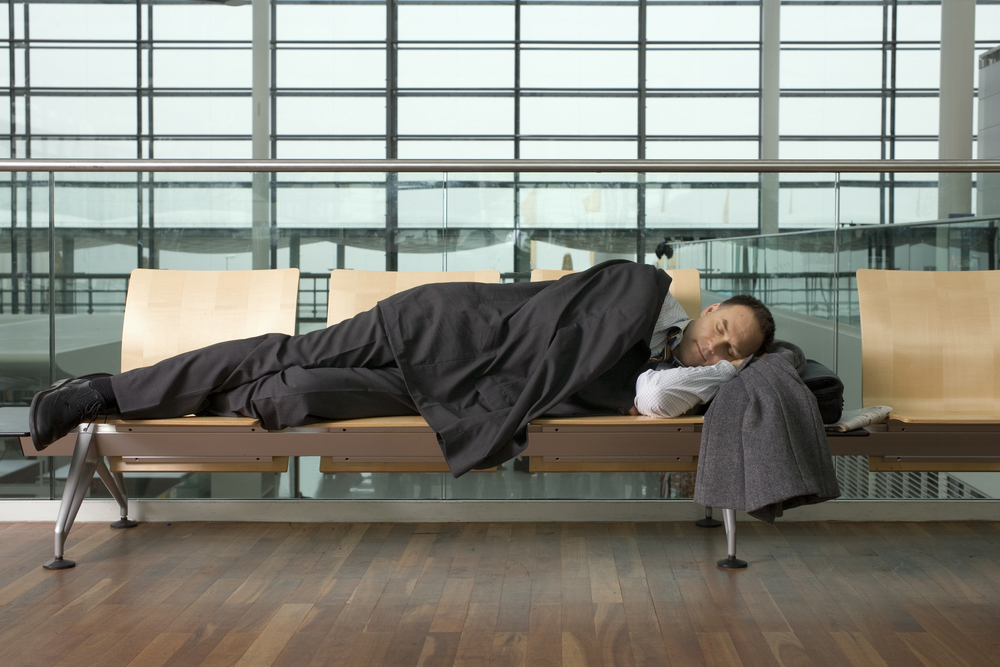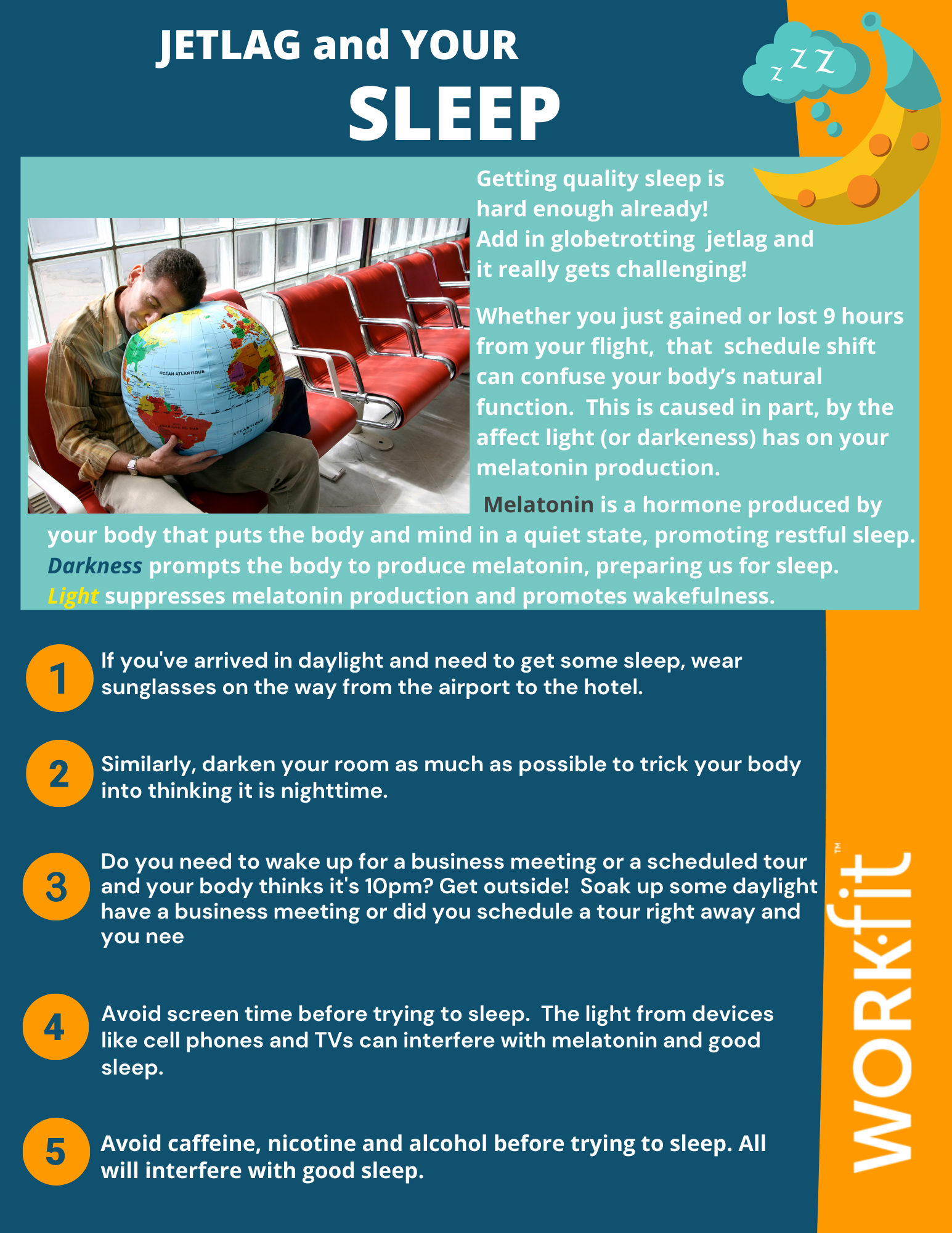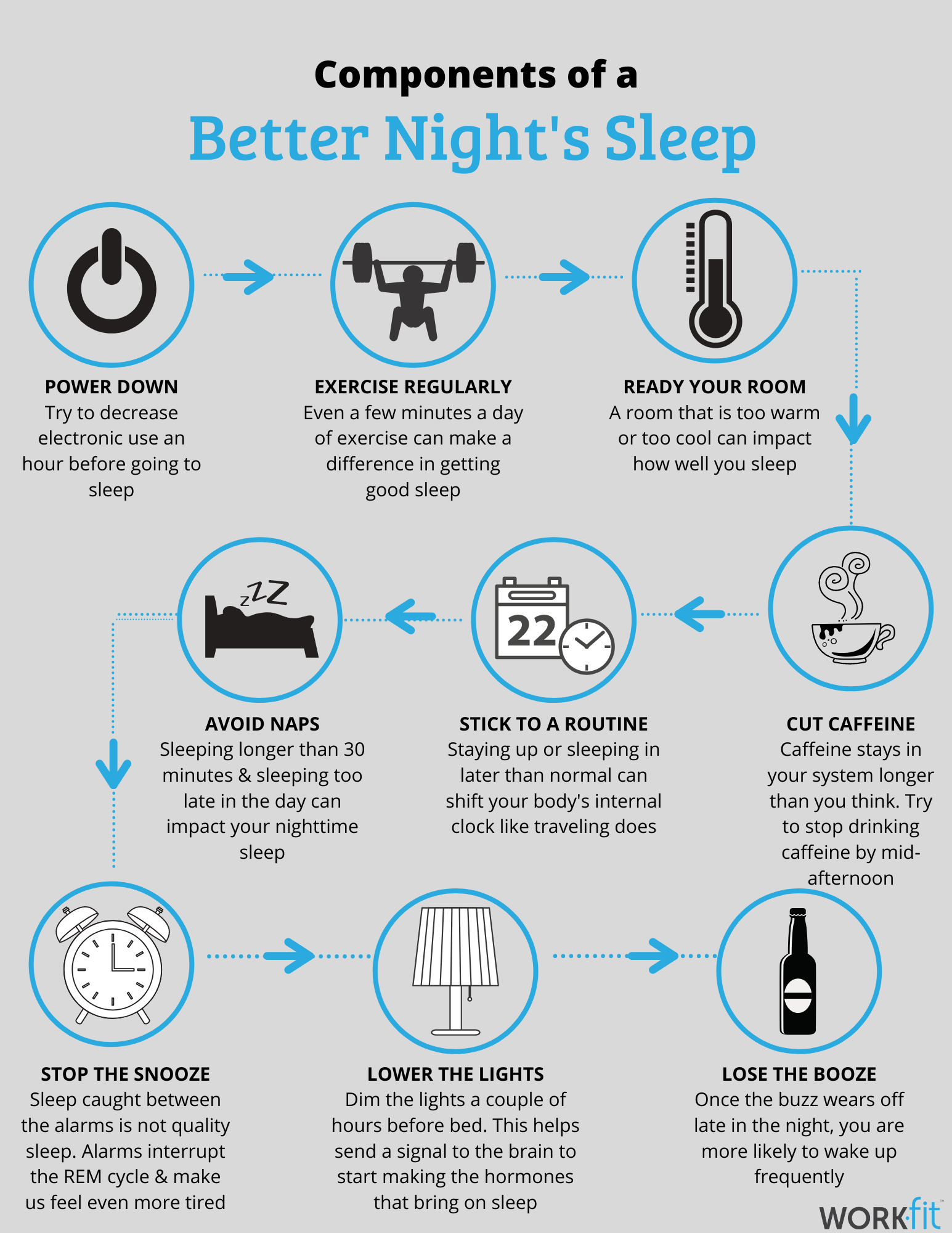How To Manage Professional Jet Lag

After a long cross-country business trip, there is absolutely nothing worse than knowing you have an important 8:00 AM business meeting the next morning. Even if the clock on your hotel bed table says that you’re getting to bed at a reasonable hour, your body time might say that it’s actually 1:00 AM. No matter how well you have supposedly prepared for your meeting, the mental fogginess that tends to come with travel jet lag is hard to overcome.
According to recent statistics, Americans make more than 405 million long-distance business trips per year. This means about 1.1 million people are traveling for business every day in the United States. While even professional road warriors may not deal with jet lag on a daily basis (like flight crews, whose job can take them across multiple time zones and back in one shift), learning how to deal with jet lag is an important part of job preparedness and protecting both your mental and physical health.
Below, we take a quick look at some of the negative effects of jet lag on the body and mind. We then offer a few solutions for how to manage jet lag if you are a frequent business traveler or commuter.
The Negative Side Effects of Travel Jet Lag

What is jet lag? Officially known as desynchronosis and classified as a short-term sleep problem that affects travelers, jet lag can occur when traveling from one time zone to another causes a disruption in the body’s circadian rhythm (which is connected to the cycle of light from day to night.) Though you certainly can get jet lag after one trip and leave you feeling groggy and out-of-sorts the next morning, jet lag can lead to longer-term health problems for frequent flyers, and those for whom long-distance travel is a common part of the job. This includes flight crews and weekly business travelers.
Jet lag negatively affects your body mostly through the abrupt change in your body’s internal clock or circadian sleep rhythms that occurs when travelling across at least two time zones.
According to the Sleep Foundation:
“…circadian rhythms are 24-hour cycles that are part of the body’s internal clock, running in the
background to carry out essential functions and processes. One of the most important and
well-known circadian rhythms is the sleep-wake cycle.”
Some of the symptoms of serious jet lag include:
- headaches
- difficulty sleeping (insomnia)
- daytime fatigue
- gastrointestinal problems
- mental fogginess and difficulty staying alert
For frequent travelers, chronically out-of-sync circadian rhythms can create persistent sleep problems that may give rise to insomnia. Insomnia can cause more serious, long-term health problems, which is why dealing with jet lag is an important “job skill” for those who travel regularly.
How To Manage Jet Lag Successfully

So how exactly can you manage jet lag so that you can avoid those long sleepless nights and groggy early mornings? Fortunately, there are several practices that can help people overcome jet lag before the negative effects set in. Below, we offer the top three tips for dealing with jet lag.
- Try to adapt as quickly as possible to your new time zone.
Even if you are just going to be in a new time zone for a day or short weekend, combatting jet lag is mostly a mental issue. Try to forget your old time zone as quickly as possible by changing all the clocks you have around you including your phone. This strategy will help you adapt your eating and sleeping times to your new time zone as quickly as possible. - Make an effort to get to sleep at night.
Even if your body says it is only 6 pm when it is really 10 pm at your new destination, it is important to try to get to sleep when night comes around. Using white noise and noise-cancelling ear plugs can help you get to sleep quicker. - Get your morning light.
Even if you don’t get a full 8 hours of sleep, getting outside in the sunshine can wake up your body and reduce the release of melatonin hormones that make you sleepy. This is another strategy that can help your body quickly adapt to your new time zone.
Get Jet-Setter-Fit With Work-Fit
If you are a company who hires workers frequently exposed to long-distance travel, you might also consider hiring a third-party contractor that can help the company develop the best strategies for dealing with the negative effects of jet lag.
Work-Fit is a leading onsite and telehealth injury prevention and wellness management team for your workforce. Our wellness management program is a great resource that can help your employees stay mentally alert and more productive even when dealing with jet lag on a regular basis. Contact Work-Fit today to see how we can help your employees overcome the negative side effects of jet lag.



